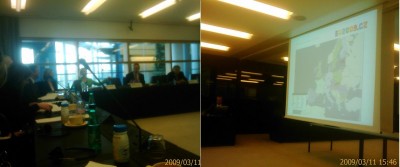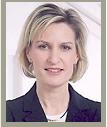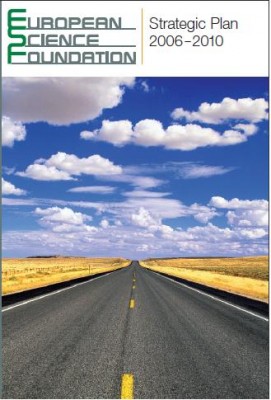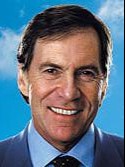Strasbourg's European Science Foundation a key for EU Research "Joint" Programs ?

A new role by Strasbourg-based "European Science Foundation" (ESF)'s can become key for Research funding in the EU in future, sooner than expected, revealed a Hearing on "Joint Research Programming" organized at EU Parliament by the Chairwoman of the EP Committee on Industry, Telecom, Research and Energy, German MEP Angelika Niebler.

Despite the growing importance of Innovation in Global competition, RST funding in the EU rather "decreased" during the last 6 Years, except in a few Memer Countries, such as Esthonia (No 1 among the 27 in RST funds' growth). Added to the fact that EU already used to spend comparatively less than its main competitors in RST, is new US President Obama's Economic Stimulus Plan which reserves, out of 700 Billions $ in total, more than 10 Billions $ in RST.
Europe can only meet today's challenges if it succeeds to mobilize and coordinate together its National Research Programs, since 85 % of RST Public Funding in the EU is made through National channels.
"Joint programming (by grouped EU Member States) could become at least as important as the (EU's) Framework programme", stressed EU Commissioner for Research, Jan Potocnik, who launched since the 2nd half of 2008 a call "towards Joint Programming in Research" (JPR) as a New European method of "working together to tackle common challenges more effectively", echoeing several appeals from EU Council and Parliament.
As Institutional tool, EU Treaty's Article 169 allows EU Commission to participate in Research programms jointly decided y many EU Memer States, if EU Parliament approves it. Coordination is obviously needed to establish a coherent approach with cross-border results.
But the right instruments have yet to be developed in Europe, as indicated the presence of representatives from EU Commission's, the Economic and Social Committee, and of a "High Level Group" on Joint Programming, etc. in Strasourg's EU Parliament's hearing.

In this relation, Strasbourg-based "European Science Foundation' (ESF)'s recent Strategy, after some 35 Years of Experience, to shift the focus from EU Research (closely followed in the Past, f.ex. via EU Parliament's Rapporteur Linkohr, etc), towards fostering a common overall view and Networking among EU Member States' National Research Programms, to advance RST and explore New directions at European level, fits well the new trend. But today, this is currently accentuated and accelerated by the urgent need to find efficient replies to the Economic Crisis, able to guarantee also the Future, mainly through Innovation.
Significantly, the key-Expert who introduced at EU Parliament's Hearing was a Professor of Charles University in Prague, Czech Republic (the 2009 EU Chair), who is, at the same time, a long-time member of Strasbourg's ESF...
Original features of JRP is that funding sources are always Public, between EU Member States, without being obligatory, and that it doesn't necessarily need participation of all 27 EU Member States, while remaining "open" to all those willing to join.
Identifying jointly agreed Priorities among a wide spectrum of RST areas, is obviously a key issue, as already indicated the presence, at EU Parliament's Hearing, f.ex. of an "Alzheimer JP pilot", and of the "Advisory Council for Aeronautics research in Europe" (ACARE), etc.
ESF's latest "Strategic Plan", a precious overall view on all RST projects' areas in Europe, regroups most of them inside large Bio-Science and Earth-Science poles (including International Law, Aero-Space, etc).
Indicating the currently growing importance of the latter, ESF has just chosen as its new Director of Science and Strategy Development, Dr. Marc Heppener (Dutch) from the European Space Agency (ESA).

Heppener's most urgent tasks include the preparation of ESF's New overall Strategic Plan for 2011-1015, to update the current tool which ends in one year (2010).
Experienced at the "interplay between Science and Politics" at an European/International level, ESF's new Strategy Development Director wants to stimulate "joint use of the Financial and Political clout" of ESF's 80 Member Organizations from 30 Countries, in order to "contribute strongly to the overall European research potential".
However, a current Geo-Political Problem for ESF is that, curiously, while it includes not only EU and EFTA Countries, (Norway, Switzerland, Iceland), but even Turkey, on the contrary, it doesn't yet include European Countries such as Latvia and Malta (EU Members), Serbia and Ukraine (important for several Technologies), nor Georgia, Moldova, Armenia, etc. Furthermore, opposite to earlier trends, it also doesn't include Russia.
This obviously unbalanced situation might either incite the ESF to review its structure's core, or give the focus to EU's European Research Council (ERC) and various other EU satellite bodies to activate and boost Joint Programming in the European Research Area (ERA).
Main Menu
Home Press Deontology/Ethics 2009 Innovation Year EU endorses EuroFora's idea Multi-Lingual FORUM Subscribers/Donors FAQs Advanced search EuroFora supports Seabird newsitems In Brief European Headquarters' MAPs CoE Journalists Protection PlatformBRIEF NEWS
- 00:00 - 02.06.2021
- 00:00 - 18.10.2020
- 00:00 - 19.06.2020
- 00:00 - 18.05.2020
- 00:00 - 20.04.2020
- 00:00 - 02.02.2020
- 00:00 - 09.12.2019
- 00:00 - 27.11.2019
- 00:00 - 16.11.2019
Popular
- Yes, we could have prevented Ferguson riots says World Democracy Forum's Young American NGO to ERFRA
- Spanish People Elect CenterRIGHT Majority with 1st Party and Total of 178 MPs (6 More than the Left)
- Pflimlin's vision
- The European Athletic "Dream Team", after Barcelona 2010 Sport Championship Results
- Source Conseil d'Europe à ERFRA: Debatre Liberté d'Opposants à Loi livrant Mariage+Enfants à Homos ?
- Head of BioEthics InterGroup, MEP Peter Liese : "Embryonic stem cell research reaching its END" !?
- Spain: Jailed Turkish Terror suspect with Explosive,Drones,Chechen accomplices stirs Merah+ Burgas ?
- UN Head Ban Ki Moon at CoE World Democracy Forum : - "Listen to the People !"
Latest News
- Test Photos (f.ex.+ Invit to EU + Korea Peace meeting)
- EUOmbudsmen Conference 2022: Digital Gaps affect People's Trust threaten EF Project on EU Future ?
- French Election : Black Out on Virus, but Obligation for Fake 'Vaccines" Challenged
- Both French Presidential Candidates point at "Humanism" in crucial times...
- France : Zemmour = Outsider may become Game Changer in Presidential + Parliamentary Elections 2022
Statistics
Posetioci: 60446323Archive
Login Form
Other Menu

EU-educated charming young Chinese presence started to be felt in Council of Europe's corridors in Strasbourg at the aftermath of an Historic Resolution adopted by its Parliamentary Assembly in favor of opening the possibility to give China a special "Status" in the PanEuropean Organization.
- "My proposal to offer to China an official status as "Observer", in short term, under conditions, was welcomed" by the CoE : "The road to Dialogue between China and the CoE has now been opened", declared after Strasbourg's debates and votes the Head of France's delegation, MEP Jean-Claude Mignon.

"Neither complacency, nor a mere condamnation of China", but a "wise approach of a political issue of great importance", advised Mignon to all those who'd either overload claims on Democracy, Human Rights or Minorities, or close their eyes to anything, there as elsewhere... A balance which was not exactly followed during debates, contrary to Mignon's personal stance, which appeared rather even-handed.
China is the only UNO Security Council permanent member which has not yet any status at the CoE, being still obliged to be represented in Strasbourg by a General Consul : USA and Canada, even Japan and .. Mexico, have already got a special Status at the CoE, following Strasbourg's decision, back in 1995, to counter-balance the accession of Russia (1996) by creating special links to traditional "Western-world" allies.

All former "Socialist" Eastern European countries started to have relations whith the CoE through its former sector on Culture and Education, before becoming full Members of Strasbourg's paneuropean organization. Speculations were unfolding recently about establishing a probable concrete link with China through the topical issue of anti-doping in Sport, on the occasion of the 2008 Olympic games.
More spectacular, a meeting co-organized a few years ago in Strasbourg, by EuroFora and the International Space University between EU Parliament's long-time Rapporteur for EU's Satellite Navigation system "GALILEO", German MEP Brigitte Langenhagen, and a group of postgraduate students, attracted special interest from Chinese experts, and was followed, in less than a month, by the anouncement of China's intention to support EU's GALILEO project with a participation of 200 million €.
Compared to that, revendications of .. "Turkish" Minorities, by Turkish MEPs, this week in Strasbourg, spreading through a wide area extended ...from Greece up to China, appeared less worrying, than pittoresque...
Meanwhile, France's political will to start involving China and other important countries in European and Global affairs was due to be raised also at the forthcoming G-8 Summit in Japan by President Nicolas SARKOZY, (NDLR : confirmed on July 5)



















